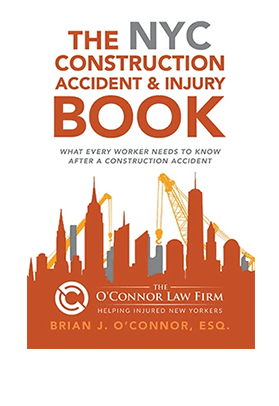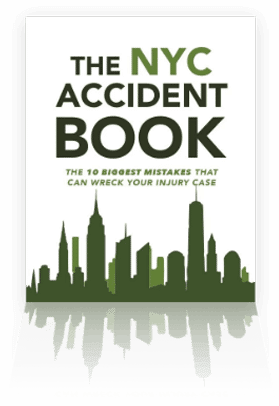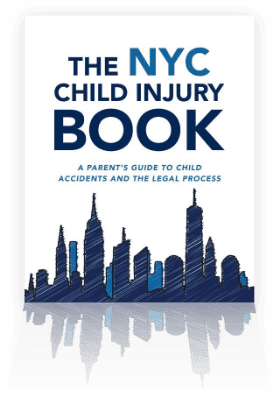New York City Traumatic Brain Injury Lawyer
Unfortunately, traumatic brain injury (TBI) is more common among accident victims than most people realize. A brain injury can affect all aspects of a person’s life, including the way they think, move and control their emotions. Many injury victims with TBI need extensive medical treatment and rehabilitation. Often, they can no longer return to work or experience life the same way they did before. At The O’Connor Law Firm, we understand the impact that a brain injury can have on a victim as well as their family. If someone else’s negligence caused you or a loved one to suffer a traumatic brain injury, we want to help you hold the negligent party accountable and pursue the compensation you deserve. We have offices in Manhattan and Staten Island, but a New York City traumatic brain injury lawyer can also come to you if you are unable to travel to us.
What is Traumatic Brain Injury?
Traumatic brain injury is:
- an acquired injury to the brain,
- caused by an external physical force, and
- results in total or partial functional disability or psychosocial impairment or both
A person who has suffered a traumatic brain injury may display a complex array of problems. Among these problems are the following:
- Physical impairments. These include speech, vision, and hearing impairments, as well as light sensitivity, headaches, seizures, partial paralysis of one or both sides of the body, and balance problems.
- Cognitive impairments. These include difficulties with long and short-term memory, impaired concentration, mental processing difficulties, and language problems.
- Psychosocial, behavioral, and emotional impairments. These problems can manifest as fatigue, emotional outbursts, an inability to control anger, depression, personality changes, diminished coping skills, and the feeling of being overwhelmed in response to normal daily activities.
The Degrees of Brain Injuries Explained by Our New York City Traumatic Brain Injury Lawyer
Severe TBI
A traumatic brain injury is usually categorized as mild, moderate, or severe. These classifications, however, refer only to the initial traumatic insult along with the degree of neurological deficit. Although healthcare professionals do not all agree about what factors must be present to support a particular classification, most experts agree that a severe TBI involves significant neurological deficits and a significant insult to the head or brain, like skull fracture or impalement.
Moderate TBI
A moderate TBI may involve a lesser insult to the head or brain where fairly significant cognitive, physical, and psychosocial problems exist to varying degrees. The presence of seizures, severe headaches, and loss of consciousness (LOC) lasting several minutes, as well as loss of concentration and mental processing problems may also support a diagnosis of moderate TBI.
Most individuals who sustain a traumatic brain injury will have a mild traumatic brain injury (MTBI). In fact, approximately 85% of TBI victims who claim compensation for brain damage will have this level of injury.
Mild TBI
However, the label “mild TBI” is misleading, because a “mild” brain injury can cause significant disruption of a person’s life. Studies have shown that as many as 10-20% of patients with mild traumatic brain injury may continue to experience long-term problems (lasting longer than twelve months following injury).
The MTBI Committee of the American Congress of Rehabilitation Medicine has defined mild traumatic brain injury to include any of the following:
- Any period of loss of consciousness;
- Any loss of memory for a period of events immediately before or after the accident;
- Any alteration in mental state at the time of the accident (e.g., confusion, dazed feeling, disorientation); and
In the legal setting involving MTBI claims, the insurance company and its attorneys and experts will argue that MTBI symptoms lasting longer than twelve months are due solely to preexisting factors or malingering, or both.
Does a Diagnosis of Traumatic Brain Injury Require Loss of Consciousness?
Insurance companies like to focus on whether the TBI victim has suffered a loss of consciousness (LOC) following the initial trauma. There is a common myth that without loss of consciousness for a significant period of time, no TBI was sustained and no diagnosis of TBI is accurate. The medical literature suggests otherwise. Although the existence of LOC can have some bearing on the likelihood of making a full recovery, it is not necessary for a person to have been unconscious for him to have suffered a TBI.
Even though loss of consciousness is not necessary to support a diagnosis of traumatic brain injury, its absence poses challenges in the legal claim. In cases where the victim has significant complaints but only minor trauma, insurance companies mount a very aggressive defense and assert that the TBI victim’s problems are due to other pre-existing factors or that the person is a malingerer (that is, that the person is a liar). These cases are the hardest for an injured person to win, because insurance companies have spent millions of dollars developing very persuasive approaches to defending these claims and, unfortunately, have had much success defeating them.
How Can a New York City Traumatic Brain Injury Lawyer Prove Your Injury Occurred?

Since most brain injury cases involve mild traumatic brain injury, the very existence of a TBI is often the central and disputed issue in cases in litigation. Most of the time the MTBI victim’s diagnostic imaging tests (i.e., X-ray, CT and MRI scans) will appear normal. How can this be, if there is actual injury to the tissues in the brain? The fact is that damage to brain tissue, consisting of nerve fibers and cells, is often microscopic and therefore may not be detected by conventional imaging techniques.
Consequently, these cases are defended aggressively by insurance companies. They focus their efforts on the lack of “objective proof” of the brain injury itself and rely heavily on the fact that the results of whatever X-ray and CT and MRI scans were performed were normal.
So how do we prove a traumatic brain injury when imaging results look “normal?” Brain dysfunction following a traumatic brain injury is typically measured in the following areas:
- executive function
- language skills
- verbal memory
- attention
- sensory/ motor
- emotion
- organizational efficiency.
The field of neuropsychology encompasses the study of the relationship between brain function and behavior. The neuropsychologist uses a battery of tests and interviews to help measure brain impairment or dysfunction. The tests used by neuropsychologists can provide information on the person’s ability to communicate, plan, organize, and relate to other people.
Common Causes of Traumatic Brain Injury
Many brain injuries are the unfortunate result of someone else’s negligence, carelessness or recklessness. Some of the many caused of TBI include:
- Car Accidents
- Slip and Falls
- Construction Accidents
- Sports and Recreation Injuries
- Premises Accidents
Damages In a Traumatic Brain Injury Case

When a person suffers a brain injury they may require extensive medical and rehabilitative care, as well as medication, psychological counseling, use of assistive devices and ongoing home healthcare. These expenses can reach hundreds of thousands of dollars and more over the course of a victim’s lifetime.
At The O’Connor Law Firm, we are dedicated to investigating your case immediately and often consult with liability experts when we need to show why an accident happened and who should be held responsible for it. We also consult with medical specialists and life-care planners to show how your brain injury has impacted your life. Our goal is to establish a complete picture of your losses which often include:
- Pain and suffering (past and future)
- Lost income (past and future)
- Medical Expenses
- Cost of rehabilitative care
- Prescription medication costs
- Disability
- Long-term care
- Emotional distress
- Loss of enjoyment of life
Contact a New York City Traumatic Brain Injury Lawyer Today
If you or a loved one has suffered a traumatic brain injury (TBI) due to the negligent conduct of another, you have the right to seek compensation, including all past and anticipated medical costs and for your pain and suffering.
If you choose The O’Connor Law Firm, your New York City or Staten Island traumatic brain injury lawyer will provide answers to your questions about brain injury law and give you the confidence to know that your case will be handled by an experienced NYC trial lawyer so that you can focus on your recovery. We offer free, no obligation initial consultations. If we agree to work together, you do not pay us until we win your case by settlement or verdict. Call us at 212-566-4868 or 718-948-3500 or send us a message so we can help you today.




